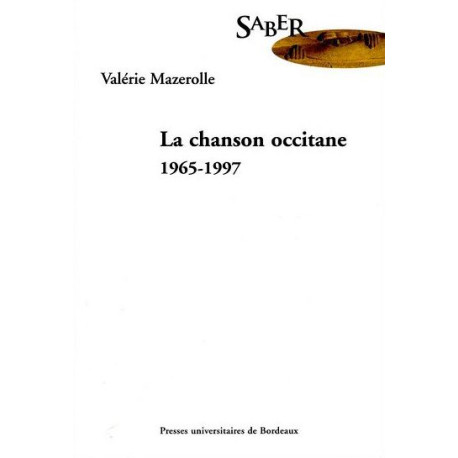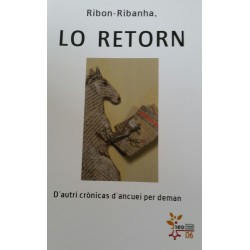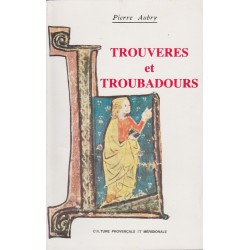Recently added item(s)
No products
Product successfully added to your shopping cart
There are 0 items in your cart. There is 1 item in your cart.
Musique
- New Selection
- Books
- Music
- Videos - DVD
- Miscellaneous
- Revues, Journaux
Links
La chanson occitane 1965-1997 - Valérie Mazerolle

L-9782867814464
New
1 Item
Available
27,00 €
La chanson occitane 1965-1997 - Valérie Mazerolle. In the 1960s-1970s, Occitan songs were used as a means of protest during demonstrations. It then became a traditional music and succeeded in interpenetrating the political and the cultural. After 1990, urban groups began to express their social roots. Presses Universitaires de Bordeaux.
Data sheet
| Type | Paperback |
| Year | 2008 |
| Language | French |
| Pages | 342 |
| Format | 16 x 24 cm |
| Distributor | Presses Universitaires de Bordeaux |
| Label | PUB |
| ISBN | 978-2-86781-446-4 |
More info
La chanson occitane 1965-1997 - Valérie Mazerolle
Thirty years of Occitan song means artistic and social practices, debates and issues that involve not only the Occitan movement, but society as a whole...
After appearing discreetly in the 1960s as an auxiliary to poetry, song became the most effective vector of Occitan demands after May 1968, with singers such as Claude Marti, particularly during the Larzac demonstrations (1973-1974). It was presented as a political tool for forging an identity, but also for recomposing social relations and renegotiating the status of minority languages and cultures with the French authorities.
Protest songs then retreated in favor of folk reappropriation of the traditional popular repertoire by better-trained musicians, who had often practiced collecting and benefited from the support of new cultural institutions.
Sensitive to new musical trends (reggae, rap), a third wave, at the end of the 1980s, dubbed by Claude Sicre "Ligne Imaginot", in reference to the anti-centralist and anti-regionalist thinking of Félix Castan, In Toulouse (the Fabulous Trobadors), Marseilles (Massilia Sound System) and Nice (Nux Vomica), the group expressed a concern for the social roots of its practice, and set out, in Occitan and French, to invent a new urban folklore, a ferment for the regeneration of national cultural life.
This is what Valérie Mazerolle analyzes in her rich and insightful study, the result of the thesis she defended at the Université Blaise Pascal in Clermont. A book of contemporary history that will enthrall lovers of today's music as well as those of Occitan culture.
With discography, bibliography, illustrations and numerous quotations.
Saber collection, published by Presses Universitaires de Bordeaux.
The author:
Valérie Mazerolle has a doctorate in contemporary history, with a thesis, "Les voix de l'espace occitan. Les Chanson occitanes : identité et représentation (1965-1997)", defended in 2005 at the Université Blaise-Pascal de Clermont-Ferrand, under the supervision of Catherine Bertho-Lavenir, professor at the Université Paris III-Sorbonne Nouvelle, from which the present book is derived.
Reviews
No customer comments for the moment.
Customer reviews
Une référence pour mieux connaître la culture musicale occitane de la fin du 20ème siècle.
 English
English Français
Français Occitan
Occitan











